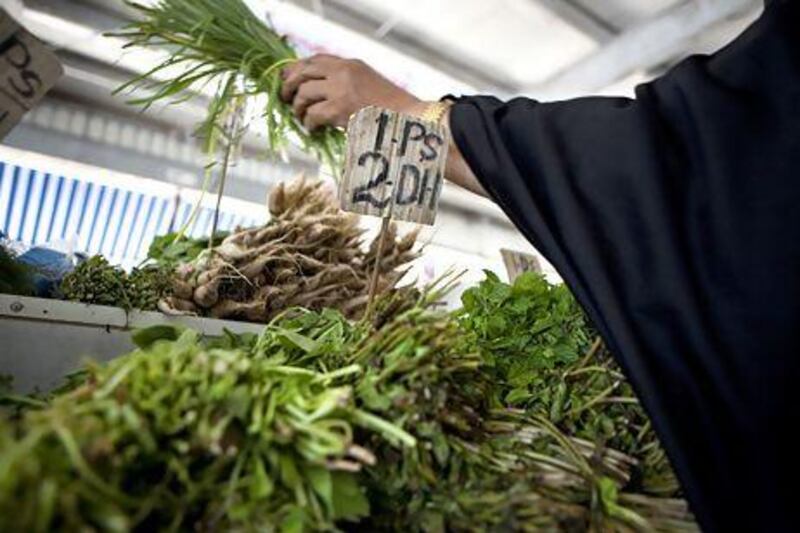Inflation is regarded as one of the deadliest of economic sins, so recent statistics that show its levels falling substantially in all GCC countries, and the Emirates in particular, should be welcomed.
But there is something quite curious about the most recent set of figures that suggests the UAE economy could be on the cusp of benign structural changes.
Inflation in the Emirates is "close to zero", according to a new piece of research from the London-based consultancy Capital Economics. The rate is low in most of the GCC states; Saudi Arabia, Kuwait and Qatar, for example, show the rise in core consumer prices at between 2 and 4 per cent.
But the UAE stands out. For the past two years, consumer price rises have been mostly in negative territory or banging against the zero line. Inflation poked its way briefly up in the third quarter, but was still less than 1 per cent.
Official figures from the UAE Ministry of Economy showed the consumer price index rising by 0.6 per cent last year, while the IMF was slightly higher at 0.98 per cent, but the margin was so small as to be negligible. All are agreed that prices seem virtually to have stopped rising.
Most would say that is a good thing, especially in the period after a financial crisis and recession that has often been compared with the Great Depression of the 1930s.
Back then, in a development that seems to have been seared into the world's collective economic memory, hyperinflation wrought havoc for years, especially in Europe. To have avoided that fate is no bad thing.
Working out exactly why inflation has not taken off is perplexing. The situation in the Arabian Gulf was complicated by the reaction of governments to the Arab Spring. Some poured billions of dollars into their domestic economies in a bid to resolve social problems that might spark violent protest.
This huge fiscal stimulus can only be regarded as inflationary, especially in an era of historically high energy prices, but it did not produce any significant "spike" in consumer prices.
Some Gulf policymakers have revisited the strategy of fiscal stimulus in response to weakness in the global economy. The Saudi budget for 2013, for example, is 20 per cent up on the previous year.
The increase in federal UAE and individual emirates' budgets are less than the Saudi increase, but still significantly higher.
In the background are the billions of dollars worth of mega-projects recently announced in both Abu Dhabi and Dubai. It is hard to see these as anything other than inflationary. The pressure for serious price rises further down the line is being stoked.
Capital Economics explains the lack of inflation so far as being down to several factors. There are still relatively high unemployment rates in GCC countries, which implies these economies are not bumping up against capacity constraints; and headline price increases in the region are often driven by food and energy prices, which are the subject of global forces, rather than underlying domestic economic considerations.
In the UAE, the consultancy says, another reason is weak domestic demand, and falling private-sector credit.
Maybe that's how an economist sees it, but any resident who has recently been to Dubai Mall on a Friday afternoon, or received yet another invitation from a bank to take out a new credit card or loan, will find it hard to agree.
Perhaps in Saudi Arabia the danger of an "overheating" economy, while still a threat, has diminished to a large degree.
In the UAE, from the official figures, the outlook seems somewhat different.
High levels of economic activity (as evidenced by government spending plans and consumer spending activity), coupled with near-zero inflation, imply a real and permanent shift in the earning power and capital accumulation capability of individuals.
Enjoy it while it lasts.
[ fkane@thenational.ae ]





